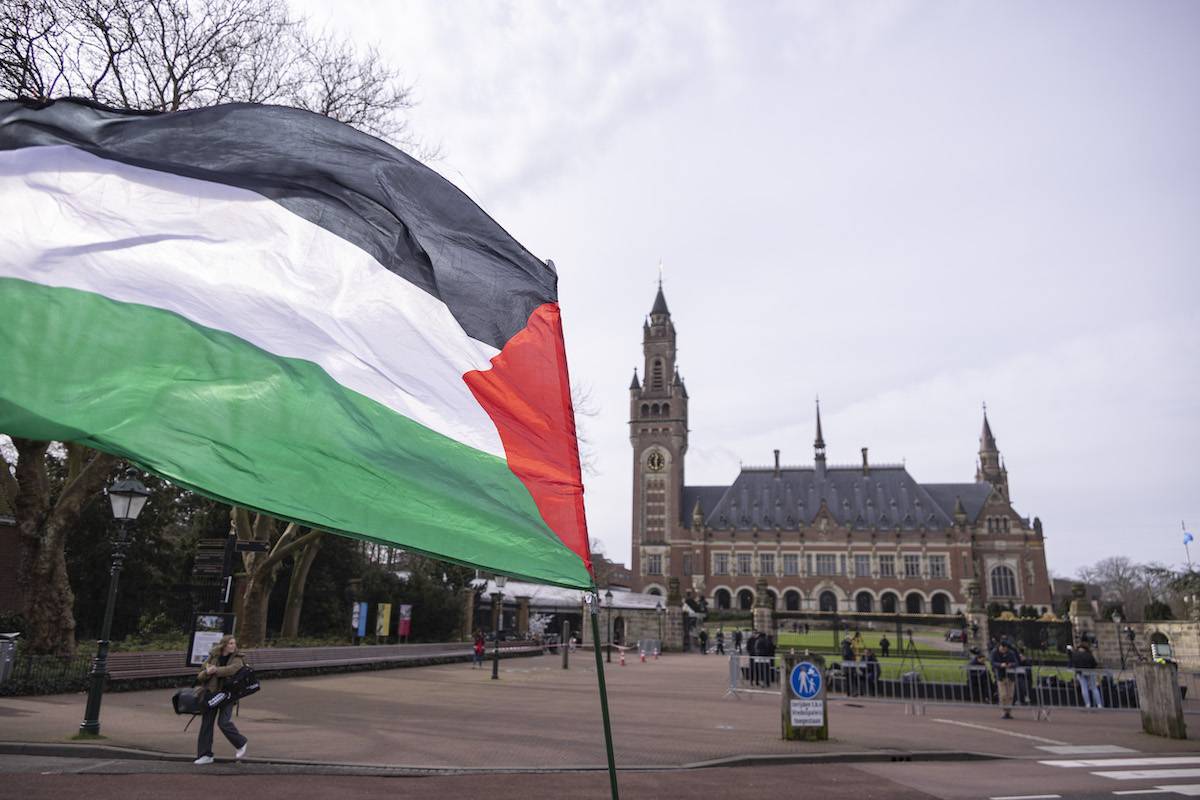While the leaders of the Israeli occupation continue to repeatedly claim that they have “changed” the Middle East, the prevailing conviction among them, far from these demagogic and populist terms, raises the need to view the changes taking place in the region within a context that may carry many risks, making it necessary to stop feeling a sense of “misleading pride”.
The ongoing developments in the region have proven, despite what the occupying state claims about accomplishing military achievements for the past year, that they are surrounded by long walls, despite their extremely high costs, whether by allocating a huge share of the budget to maintain a large army, reaching 30 per cent of the state budget, the militarily burdened society the Israelis live in, or the constant feeling of fear and uncertainty.
At the same time, the disputes that the occupying state is witnessing, which have reached the level of fights, have been translated in the constant discourse in its diplomatic and political forums, and the circulation of reports that reveal the decline of its position on the international scene. This presents embarrassing and disturbing conclusions about it, and the decline of its strategic position on the regional scene.
OPINION: As states take the lead, is the curtain falling on UN’s role as global mediator?
Despite the obnoxious talk about the occupation’s military achievements, its political circles are talking about the government, and the offensive behaviour of its Prime Minister, Benjamin Netanyahu, and his ministers, which negatively affects its regional and international position. This has caused major damage to it and destroys its position on the international scene. This damage will continue as long as this government remains in power, because the world has come to know the state through its figures, such as Ben-Gvir and Smotrich.
Israelis have little doubt that their current government is worse and more dangerous than any criminal gang. Its leaders are intent on causing serious harm to the state, not to mention destroying it. Its President and ministers have shown disgraceful behaviour that has resulted in thousands of Israeli deaths, tens of thousands of Palestinian victims, hundreds of kidnapped people, tens of thousands of wounded people and hundreds of thousands of people evacuated from settlements. It has ultimately resulted in an exhausted and divided people, a collapsed political system, a shattered economy, global isolation and destroyed parts of the state.
Many Israelis also do not disagree with the fact that the government that rules them is illegitimate, beginning with its announcement of the judicial coup, and ending with its failure to foil the Hamas attack in October, and the repeated threats made by ministers against the leaders of the army and security, which has, over time, turned it into an illegitimate government that puts Israel in existential danger. This has caused increasing Israeli calls for the need to overthrow it, at any cost.
While the Israelis are busy discussing the “day after” the end of the Gaza war, there have been calls to discuss the “day after” Netanyahu’s departure from the political scene, in light of the ongoing investigations into the corruption cases he is involved in, and their prevailing belief that their current government and its President are experts at making false statements and deceptive tricks that raise the level of tension and anxiety among them. They believe the government is resuming its implementation of the legal coup that threatens them and drags the state towards madness and recklessness.
Israelis are tired of the loud talk about the deviant behaviour of Netanyahu and his ministers, their desperate lies, their manipulation and deception of the families of the captured Israelis, their failure to tell the truth, and their tireless beating around the bush, resulting in the spread of a corrupt political culture among them. They have worked on poisoning the media and distorting their minds, which will ultimately lead to a collective collapse.
Throughout an entire generation, Netanyahu has built walls between the Israelis themselves, motivated by a desire to control them, until they reached their bitter fate, and new toxic terms entered their vocabulary, such as “traitor leftists”, “non-Jewish left”, “anti-Zionists”, “Arab lovers” and others.
The “divide and conquer” approach has, under the successive Netanyahu governments, become a way of life for the Israelis, a declared policy, and a working strategy, because he and his team have not stopped inciting and spreading hatred. They see with their own eyes how fear hovers over them, due to their political and personal failures, until it accompanied him while he stood in the dock as a defendant.
Netanyahu and his government’s failures were not limited to the domestic level, but extended to foreign paths, and caused the catastrophic failure in Gaza, and the failure to confront the Hamas attack on 7 October. He has proven through his poor political performance over the years that he has no principles or values, and that he is riding the horse of populism, and after he failed to maintain the security of the state. He must leave, this is what the Israelis themselves demand, and this is what we expect to happen after the cessation of the war in Gaza.
OPINION: Syria new leaders face economy decimated by war, sanctions
The views expressed in this article belong to the author and do not necessarily reflect the editorial policy of Middle East Monitor.

![Hundreds of people gather to hold a demonstration demanding a ceasefire and a hostage swap agreement in Gaza, on December 28, 2024, in Tel Aviv, Israel [Mostafa Alkharouf - Anadolu Agency]](https://i0.wp.com/www.middleeastmonitor.com/wp-content/uploads/2024/12/AA-20241228-36608585-36608576-TEL_AVIV_RALLY_CALLS_FOR_CEASEFIRE_HOSTAGE_SWAP_AGREEMENT_IN_GAZA.jpg?fit=920%2C613&ssl=1)







